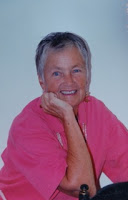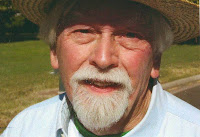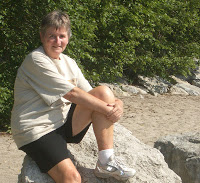Will o’ the wisp is a term I have never used—I have heard it, but never used it as I’ve never really in all honesty known what it means. I ponder. “Let’s see. What could it mean.” Maybe a wispy will, i.e., a wimpy will, or maybe, I’ m thinking, it just might be referring to fly-away wispy hair, you know, hair that has a will of its own.
Fortunately I have my trusty computer handy and I can go to wikipedia and look it up with no trouble at all and get an immediate answer to the question of the meaning of will o’ the wisp.
Then maybe I’ll have something to say about it. I’m not sure.
So I see that it refers to a ghostly, flickering light seen in bogs and swamps and marshes. It seems this ghostly light has an evil purpose; that is, to draw people from safe pathways.
When I think of swamps and bogs in relation to my life experiences, one thing comes immediately to mind. In 1950 when I was almost fifteen years old, my family was forced to make a major change in our living situation. We lived in New Jersey in a town called Mt Lakes, a rather idyllic place to live. Mt. Lakes had a small mountain and two lakes. I enjoyed a lake in my back yard and a woods in my front yard. I walked to school, played in my boat, rode my bike, skated on the frozen lake in the winter. Life was good in Mountain Lakes, New Jersey. My parents were happy there, too.
One day because of changes in my father’s business we had to leave Mt. Lakes and start living in Louisiana. I knew nothing about Louisiana at the time, but when I learned I would be living there I sought as much information as I could about the new place that would be my home.
One of the first things I learned was that Louisiana is a swampy place. I discovered that bit of information first because my father explained that some of the trees he would be cutting for his lumber mill would come from the swamps. He would be harvesting cypress trees and cypress trees grow in swamps.
I was not happy about going to such a place. I don’t like dark, dank, watery places that harbor slimy creatures such as snakes and alligators. I am especially afraid of snakes, poisonous or not. Never mind, I said, I’m not going into any swamps. I’ll just have to stay on the high ground in the town where we would be living.
I felt, on the one hand, a bit of excitement about moving to a completely different place. But on the other hand, I did feel I was being drawn from the safe, predictable pathway I had been on for the first fourteen years of my life. I was not happy about leaving my friends, my school, my lake, my woods, and all the things around me I had grown to love. No ice skating in Louisiana. It’s hot there and buggy too.
It turns out that my life in Louisiana was not so different from my life in New Jersey. I had many wonderful friends, I liked my school, and I never had to go wading through the swamp. Instead I enjoyed spending time with my friends in boats on the many rivers in our area and doing the kinds of things high school kids do. I had a fairly normal existence in my last three years of high school in Louisiana. However, immediately after high school I went back up north to attend college. I definitely did not want to stay in that part of the world.
That ghostly light actually did eventually draw our family from its safe pathway. My family consisted of my mother, my father, my older brother and younger sister. After 5 years in Louisiana, my mother developed cancer and succumbed at the age of 47 after 2 years of suffering. My brother stayed in Louisiana, married a local woman and had 3 children before he, too, developed brain cancer and died at the age of 29 a few months before his fourth child was born.
It is said that Louisiana is in the “cancer belt.” Perhaps because of the toxins in the wind that blows east from the Texas oil refineries. The area where we lived is located between Baton Rouge and New Orleans. This area on the Mississippi River formerly known as the “petrochemical corridor” is also known as “Cancer Alley.” Louisiana has the 2nd highest cancer rate in the U.S. Our home was not on the river, but located close to cancer alley
Fortunately my father who stay in the area, survived into his 70’s. My sister left after high school to live in Alabama. She is still living.
It turns out that the term will o’ the wisp does have meaning for me. Not a very joyful meaning even though living in Louisiana was not unpleasant for me. The experience opened my eyes and greatly expanded my view of the world. I learned about a culture and a way of life and attitudes that were totally different from what I knew in my closed, protected, homogeneous community of Mt. Lakes. I was exposed to the real world in Louisiana. Leaving the safe pathway it turns out had an enlightening effect. Although I only lived there for three years before I went off to college, those years were formative years and very important years. I am not totally ungrateful for being lured to the swamp by that will o the wisp.
© 26 February 2018
About the Author
Betsy has been active in the GLBT community including PFLAG, the Denver Women’s Chorus, OLOC (Old Lesbians Organizing for Change), and the GLBT Community Center. She has been retired from the human services field for 20 years. Since her retirement, her major activities have included tennis, camping, traveling, teaching skiing as a volunteer instructor with the National Sports Center for the Disabled, reading, writing, and learning. Betsy came out as a lesbian after 25 years of marriage. She has a close relationship with her three children and four grandchildren. Betsy says her greatest and most meaningful enjoyment comes from sharing her life with her partner of 30 years, Gillian Edwards.



